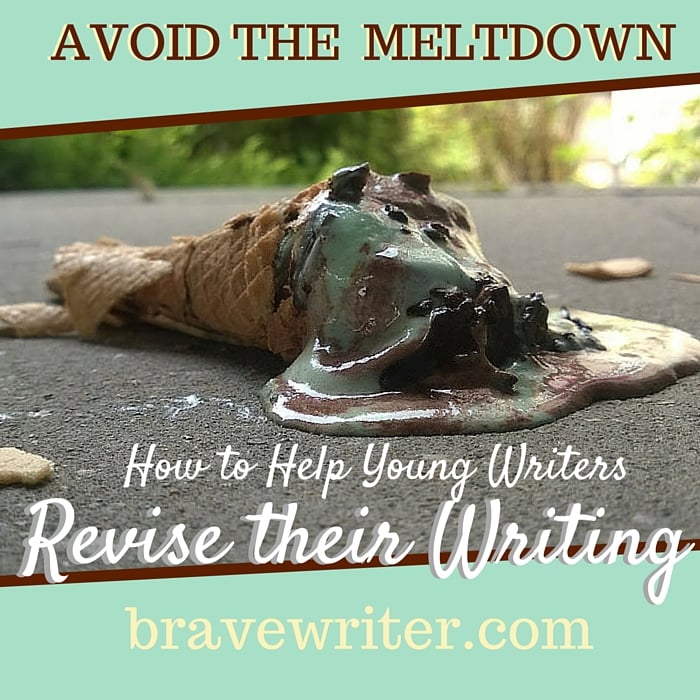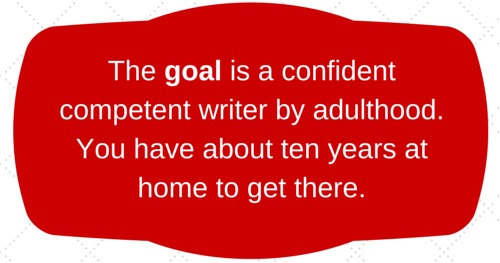I’ve been pouring over your blog and finding such calm (and erratic) wisdom and practicality there. Please share with us just what your homeschooling “style” is….CM? Eclectic with a hint of unschooling (referring to the extended Xbox musings..lol). What does your day look like? I’m curious just how you manage to meld old classical lit with pop culture music and Muppet Christmas. It all fascinates me and leaves me wanting to hear more. I’ve cast myself into a classical model the past few years and now I’m starting to realize that all wisdom is not found in the dusty novels of old. I’d love to hear more about how you make it work with such a busy lifestyle, lots of active kids and a professional career to boot! Julie, you are an inspiration!
–Janine
You know, I started a lengthy response to this question last week in my drafts folder. It got long-winded and circular. I traced the history and development of the Bogart family educational system, taking into account various and sundry influences while duly acknowledging departures and arrivals of specific philosophies. Yes, it was as boring as you’re imagining.
I went to bed one of the nights and had the oddest dream. I was sitting on a park bench watching my daughter play soccer. A mother approached me and asked: “What kind of homeschooler are you?” and I replied (I’m not making this up): “Rastafarian. Our philosophy is: Don’t worry; be happy.”
I woke up. Laughing!
But it was so true, so much truer than the hundreds of words I’d already written. The bottom line for us is that we find all of life worthy of exploration. We might go from listening to Beowulf read by Seamus Heaney to watching Disney channel sit coms in one morning. We take it all in, together.
The trick is to not worry, and to trust the process. Every new homeschooler is a worrier, though. Suddenly Aunt Gertrude is quizzing your child on his times tables over Thanksgiving turkey just because you homeschool. She leaves the public schooled cousins alone. You feel the hair on your neck prickle because you know that in everyone’s mind, you’re responsible for how they’re turning out.
So of course you worry.
Yet there is nothing that sucks the life out of children faster than a mother who worries. When we worry, we stop living in the moment. We think about how poorly the child spells when the writing is actually interesting or engaging. We wonder when our kids will ever want to watch Discovery channel instead of playing the X Box. We discount a child’s fascination with mold growing on the bread in the back of the refrigerator because it reminds us that we haven’t cleaned it out in ten weeks.
But what if we could squeeze mud into our hair and wear dreadlocks and live on a Caribbean beach? What if we could follow our kids around for a week or two, playing their games, watching their silly TV shows, going to their favorite places (the zoo, the YMCA, the IMax theater), reading the books they want to read, listening to music or books on tape over lunch?
Life would become worth living, worth paying attention to. We wouldn’t be living for the future. We’d be living into it.
At some point, I realized that it was me who had received the real home education. Our kids knew nothing else. For them, they were just living. I’m the one who had to rethink what I believed about learning and it took a long time, as I homeschooled.
All of my research: my enthusiasm for Charlotte Mason, for classical education, for living history, for unschooling, for KONOS, for delight-directed learning…
All the writing and teaching I’d done where I’d seen kids transformed by discovering they had things to say, that their interests mattered, that they were expert at things I’d never even thought about…
All together, these experiences taught me a greater lesson than anything I’ve taught my kids. Life itself is so interesting, there is so much to know, that I’ll be dead before I ever get to all of it. So I’m determined to suck the juice out of every chance I get to learn, explore, flip over the seashell and see what’s inside.
Because of homeschooling, I’ve become an interested and interesting person. I trust the process now because I’ve been changed by it. What is that process? To let go of worry and to chase after those things, those beautiful, silly, challenging, inspiring, entertaining, and meaningful ideas and to allow them to have their way with us.
Joy really has been the best teacher around here. My kids share their joys with me and I share mine with them. I look at the long view now and then so I know where we’re going. But mostly, we do things together and we do a lot of different things.
Life is too short to worry about it. We’re trying to live it. Which seems to be how we homeschool.
Thanks for asking. 🙂
Shared on Hip Homeschool Moms!






















